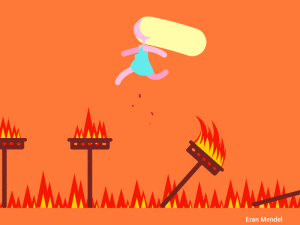
1. Write a to-do list
It’s important to take five minutes to get a to-do list every day, but don’t just make it a list of tasks, says Charles Duhigg, New York Times best-selling author of Smarter Faster Better: The Secrets of Being Productive in Life and Business. Put the short-term goals for your day at the bottom and write the “tretch goal” for what you want to reach on the next day, week, or month at the top.
“It pushes you to think about your deepest priorities,” Duhigg says. If you’ve got five minutes later in the day, reconsider your long-term goal. If you haven’t been getting closer to your recent tasks, you might want to reevaluate how you’re going to spend the rest of your day, he says.
2. Do some dusting
Keeping a list of tasks you can do in five minutes (or 10 or 15) is a simple way to make sure you ‘re prepared for ideas when you have a bit of downtime, says Laura Stack, Productivity Speaker and author of Doing the Right Things Right: How the Effective Executive Spends Time. She suggests dusting.
“I have an awards shelf of things I’ve been given over the years and keep Pledge wipes on hand, so if I’m on hold at least five minutes, I just dust the shelf,” she says.

3. Visualize your next task
If you’re about to reach a major meeting, take five minutes— or even 45 seconds— to see what’s going to happen to make things run smoother, Duhigg says. Take a step beyond rehearsing what you’re going to do and say, and imagine other people’s actions as well.
“If you tell yourself a story about how your meeting is going to go, your consciousness will be better primed for how to react to things and know what to pay attention to and what to ignore,” Duhigg says. Using this approach before running errands may also prepare you for a good afternoon, he says.
4. Sneak in some exercise
Moving for just five minutes can give you a big burst of energy, Stack says. “People just sit way too much at desks. Sitting can shorten your life if you sit too much,” she says. “Get up and move.” Stack keeps dumbbells on her desk for overhead presses, but she also suggests squats, sit-ups, or stretches.

5. Talk to people around you
When you’re working remotely in video conferences, instead of shuffling documents before a meeting starts, ask the coworkers around you what their weekend plans are.
“The most effective teams tend to be the ones that have psychological safety, which often comes from learning how to pick up on each other’s nonverbal cues,” Duhigg says. “Learning how to listen better and how to show your listening is a critical aspect.” If you’re waiting in line at the supermarket at a safe distance, talk with the person behind you— Chevy Chase made friends with Saturday Night Live creator Lorne Michaels while the two were waiting in line for Monty Python and the Holy Grail, Duhigg points out.
6. Clean out files
Five minutes should be enough time to clean out a filing folder. Stack has an orange folder stuck in the opposite direction in her filing cabinet to identify the last folder she went through, so when she’s on hold, she’ll go back to that spot. On the other hand, you can also add the documents that you intended to file. “You can make a big dent in a file pile in five minutes,” Stack says.

7. Make a phone call
A simple phone call to check in with a friend or family member is an excellent way to show your appreciation. “It’s good to say ‘I have five minutes and wanted to let you know I was thinking about you,’” Stack says.
8. Water your plants
You may not remember to water your houseplants all the time, but make a point of feeding them when you have some free time. “I don’t water plants on a consistent basis, but if I have a minute I’ll water them,” Stack says.









































































































